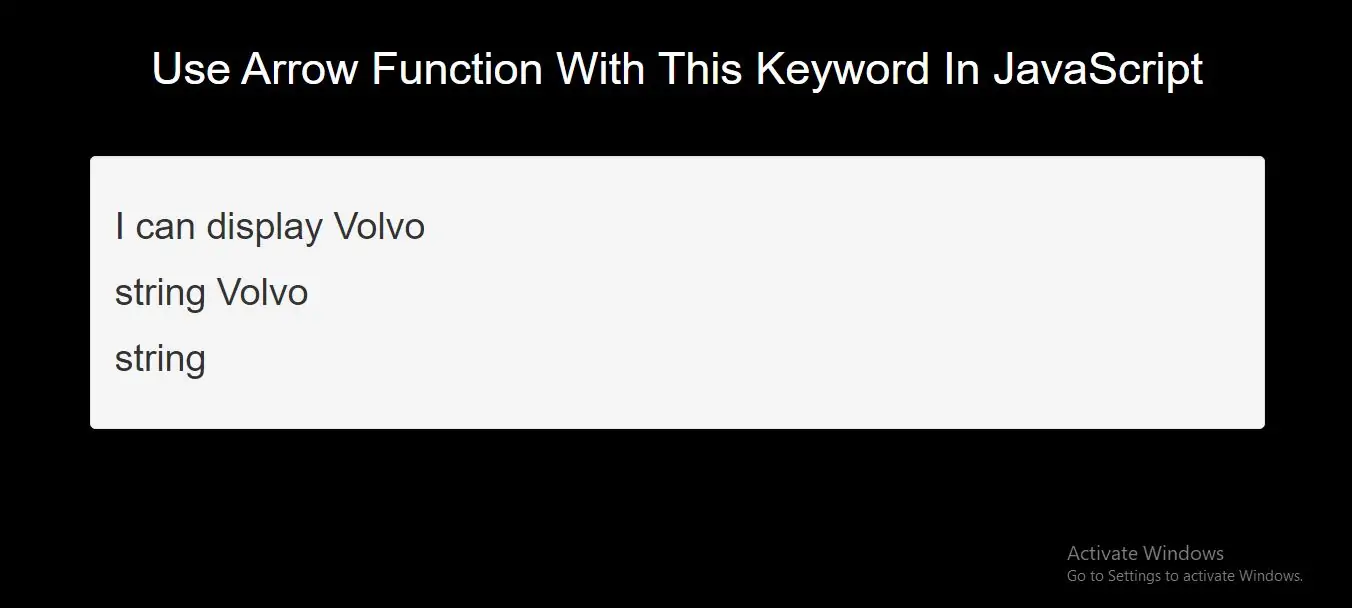
Global Scope:Variables declared Globally (outside any function) have Global Scope.
Example(1)
<script>
var carName = "Volvo";
myFunction();
function myFunction() {
document.getElementById("demo").innerHTML = "I can display " + carName;
}
</script>
Global variables can be accessed from anywhere in a JavaScript program.
Function ScopeVariables declared Locally (inside a function) have Function Scope.
Example(2)
<p id="demo1"></p>
<p id="demo2"></p>
<script>
myFunction();
function myFunction() {
var carName = "Volvo";
document.getElementById("demo1").innerHTML = typeof carName + " " + carName;
}
document.getElementById("demo2").innerHTML = typeof carName;
</script>
Local variables can only be accessed from inside the function where they are declared.
JavaScript Block Scope
Variables declared with the var keyword cannot have Block Scope.
Variables declared inside a block {} can be accessed from outside the block.
Example(3)
{
var x = 2;
}
// x CAN be used here
Before ES2015 JavaScript did not have Block Scope.
Variables declared with the let keyword can have Block Scope.
Variables declared inside a block {} cannot be accessed from outside the block:
{
let x = 2;
}
// x can NOT be used here
Redeclaring Variables
Redeclaring a variable using the var keyword can impose problems.
Redeclaring a variable inside a block will also redeclare the variable outside the block:
Example(5)
<p id="demo"></p>
<script>
var x = 10;
// Here x is 10
{
var x = 2;
// Here x is 2
}
// Here x is 2
document.getElementById("demo").innerHTML = x;
</script>
Redeclaring a variable using the let keyword can solve this problem.
Redeclaring a variable inside a block will not redeclare the variable outside the block:
Example(6)
<p id="demo"></p>
<script>
var x = 10;
// Here x is 10
{
let x = 2;
// Here x is 2
}
// Here x is 10
document.getElementById("demo").innerHTML = x;
</script>
<!DOCTYPE html>
<html>
<head>
<title>How To Use Arrow Function With This Keyword In JavaScript</title>
<meta charset="utf-8">
<meta name="viewport" content="width=device-width, initial-scale=1">
<link rel="stylesheet" href="https://maxcdn.bootstrapcdn.com/bootstrap/3.4.1/css/bootstrap.min.css">
</head>
<style>
body{
background: black;
}
</style>
<body>
<div class="container">
<br>
<div class="text-center">
<h1 id="color" style="color: White">Use Arrow Function With This Keyword In JavaScript</h1>
</div>
<br>
<br>
<div class="well">
<h2 id="demo1"></h2>
<h2 id="demo2"></h2>
<h2 id="demo3"></h2>
<h2 id="demo4"></h2>
<script>
// GLOBAL scope example
var carName = "Volvo";
global_function();
function global_function() {
document.getElementById("demo1").innerHTML = "I can display " + carName;
}
myFunction();
function myFunction() {
var carName = "Volvo";
document.getElementById("demo2").innerHTML = typeof carName + " " + carName;
}
document.getElementById("demo3").innerHTML = typeof carName;
</script>
</div>
</div>
</body>
</html>